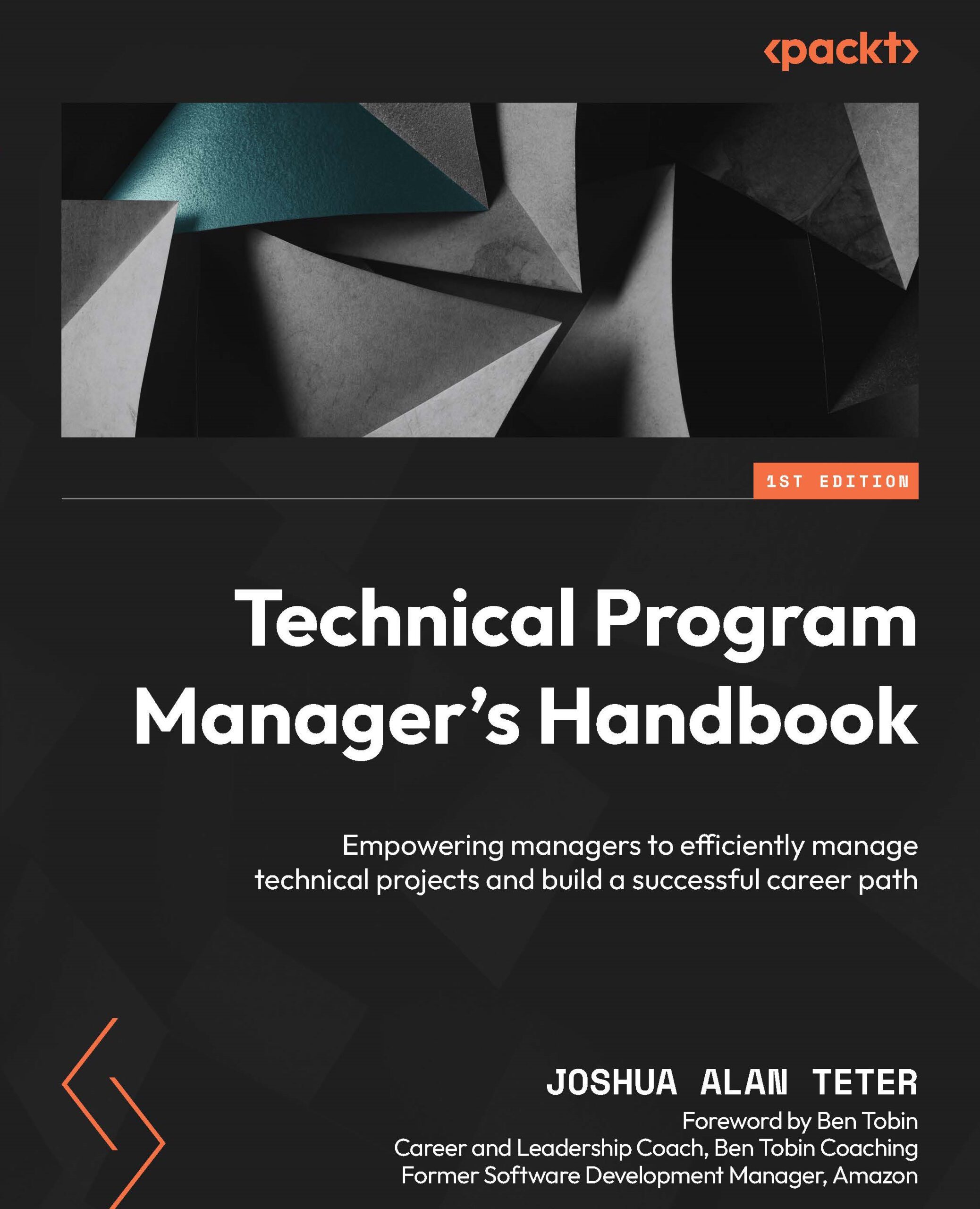Joshua Teter is the author of Technical Program Manager’s Handbook; we got the chance to sit down and find out more about his experience of writing with Packt.
Q: What are your specialist tech areas?
Joshua: I specialize in program and project management for technical teams. As such I have broad understandings across tech stacks. Though I don’t code often, I have an affinity for C# – it’s just a fun language!
Q: How did you become an author for Packt? Tell us about your journey. What was your motivation for writing this book?
Joshua: I was approached by Packt about writing a technical manual for TPMs. After doing some digging, I saw that there weren’t any books on the subject. In my 9 and a half years at Amazon, I’ve interview hundreds of prospective TPMs and to this day I still get questions about what a TPM is! I was the same way when I joined, and I felt like I was at a disadvantage not having a good grasp of the job. So, my hope with this book is to help those coming into the profession as well as those looking to enhance their career.
Q: What kind of research did you do, and how long did you spend researching before beginning the book?
Joshua: I interviewed TPMs and TPM Managers at different companies like Microsoft, Meta, and Google to broaden my perspective on the TPM role. This happened largely in parallel with the writing process just as any good TPM would do!
Q: Did you face any challenges during the writing process? How did you overcome them?
Joshua: My biggest challenge was finding a compelling narrative to carry through the book to reduce the amount of context needed as the book became more technical and detailed the further along it went. I rewrote all of Chapter 3 in order to introduce a hypothetical project that the book could follow thoughout. This was fun, but daunting to build an entire fictional project from scratch – it was like running a project while writing a book at the same time!
Q: What’s your take on the technologies discussed in the book? Where do you see these technologies heading in the future?
Joshua: This book is a bit more thought leadership and less technical in the “raw skills” sense. To that end, I don’t see much changing in terms of the technologies themselves, though I do fully expect the focus to shift around as the tech companies shift strategies. Of course, ChatGPT and AI in general is likely going to cause a large shift in some aspects of our profession though it’s still too early to know for sure.
Q: Why should readers choose this book over others already on the market? How would you differentiate your book from its competition?
Joshua: No other book on the market covers the full range of a Technical Program Manager. You can scrounge together various technical references and then read program management books but nowhere else will you find both!
Q: What are the key takeaways you want readers to come away with from the book?
Joshua: TPMs are resilient to the world around them and must quickly adapt to changes in their organization in order to be effective. To achieve this, focus on the three pillars of a TPM and ensure you have a good balance between them.
Q. What advice would you give to readers learning tech? Do you have any top tips?
Joshua: This job is complicated and not uniformly defined. This book is a great guide for a lot of what to expect but every team and company will have their own hot take on what a TPM is. So, listen carefully to the needs of your team and adapt.
Q. Do you have a blog that readers can follow?
Joshua: I write on LinkedIn and would love to have you follow me there.
Q: Can you share any blogs, websites, and forums to help readers gain a holistic view of the tech they are learning? What are the key takeaways you want readers to come away with from the book?
Joshua: The LinkedIn TPM group is a great start . There are other resources linked from there and so it’s a good place to start.
Q. How would you describe your author’s journey with Packt? Would you recommend Packt to aspiring authors?
Joshua: Packt was a great partner in writing and publishing. I think starting out, this is a great way to get to foot in the door of writing.
Q. How did you organize, plan, and prioritize your work and write the book?
Joshua: I prioritize home over all else, so my biggest priority was to disrupt that as little as possible. As such, I ended up working late nights after my family was asleep as well as occasional vacation days when I need more daytime to meet and collaborate. I put chapter due dates in my calendar and just tracked from there.
Q. What is that one writing tip that you found most crucial and would like to share with aspiring authors?
Joshua: For me, flow is key. Write what’s on your mind first, and then come back and organize. If that is hard to fathom, do some upfront outlining and then just write! Read what you wrote back and elaborate where it’s falling flat.
Q. What are your favorite tech journals? How do you keep yourself up to date on tech?
Joshua: My “free” time is spent on arstechnica.com as fleeting as that time is these days.
Q. Do you belong to any tech community groups?
Joshua: LinkedIn’s TPM group as well as Techhub.social.
Q. Would you like to share your social handles? If so, please share.
Joshua: LinkedIn and Techhub Social
You can find Joshua’s book on Amazon by following this link: Please click here









